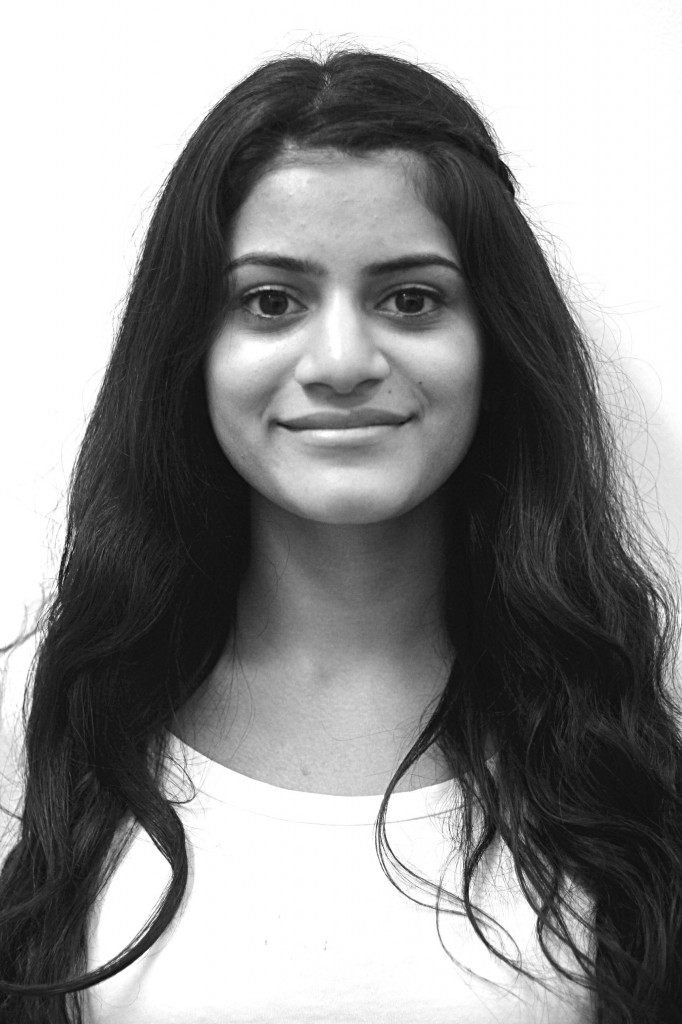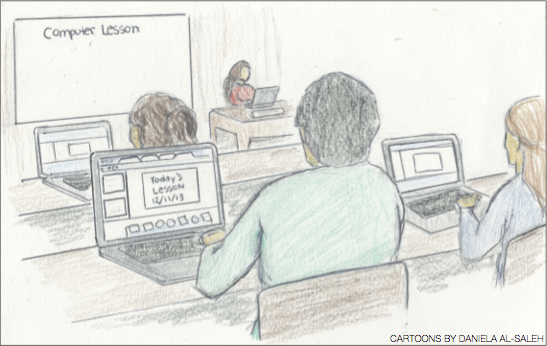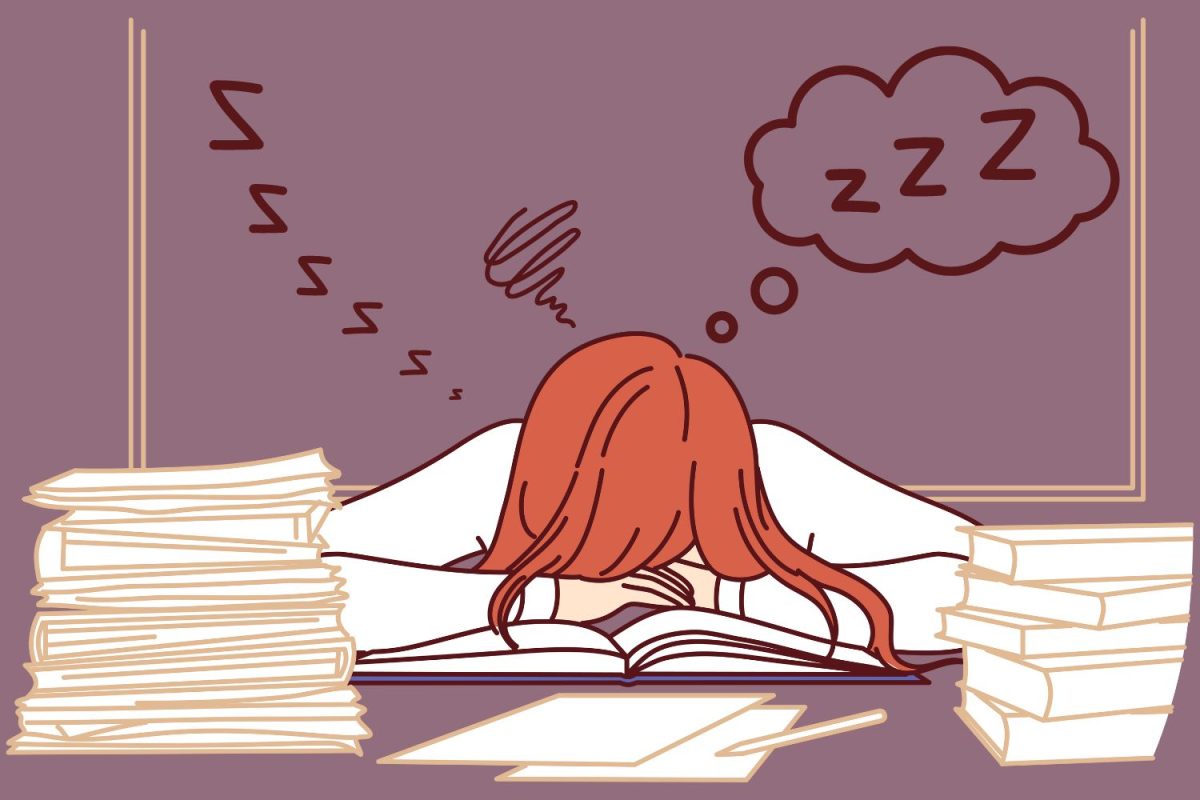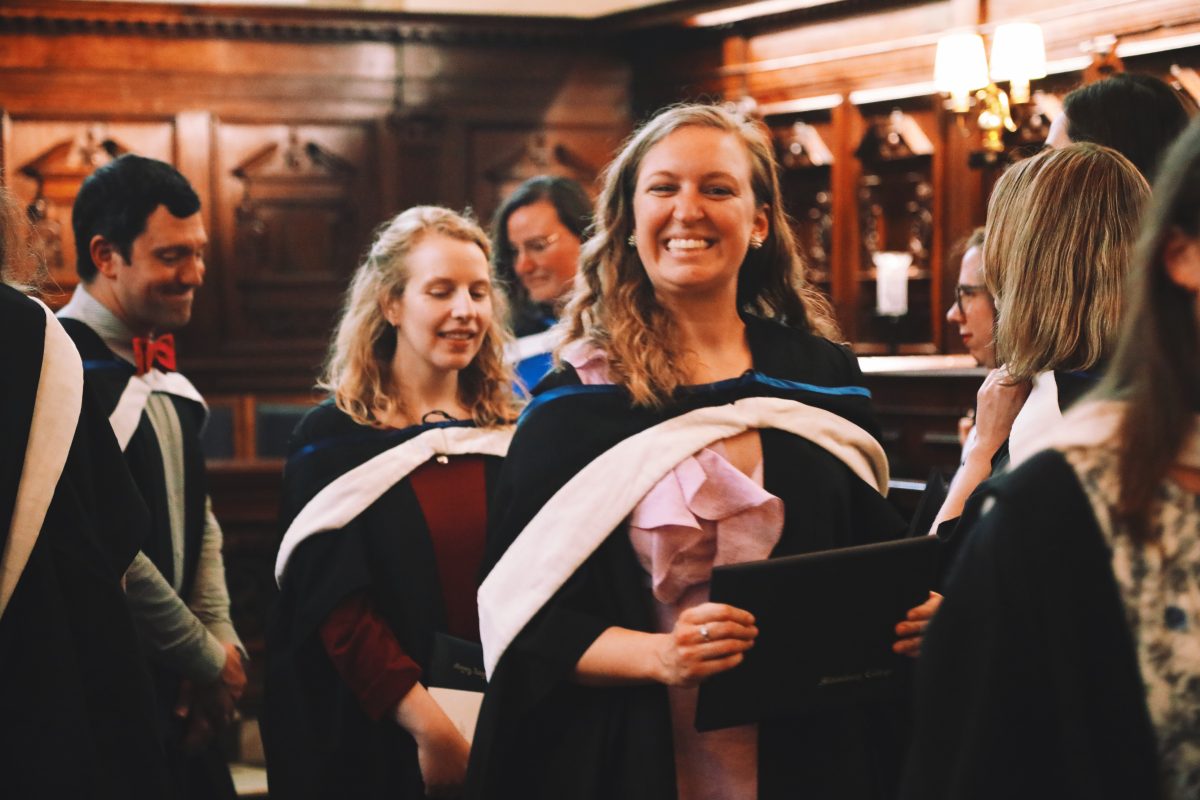Most mornings, Director of Curriculum Roberto d’Erizans waits at Waverley Place to greet students as they begin their day only to be acknowledged by a fraction of the students who pass. “Students walk in wearing their headphones,” d’Erizans said. “They don’t say hello back simply because they can’t hear me.”
Lack of personal interaction is something that has developed alongside the advances that have taken place technologically over the past few years. D’Erizans, while acknowledging this pitfall, feels that the role of technology within educational institutions is substantial and, at this point, permanent. “I think technology can serve as a powerful tool. One of the most important things to learn today is how to grapple with the access to information,” he said. “How can you access the right information? How do you search for it correctly? I think technology can serve as a tool to get to those answers.”
High School Principal Jack Phillips believes that technology plays multiple roles in classrooms and that it is beneficial because it is familiar to students. “Technology makes certain things more efficient than were otherwise possible. [Technology] provides opportunities for independent learning that you just can’t do in a traditional classroom setting and it offers access to things that were previously unavailable,” he said.
The popularity of Massive Open Online Courses (MOOC) have provided additional opportunities for independent learning amongst students worldwide. These online courses have changed the face of education in a variety of ways. They are free and thereby available to anyone who wishes to partake in them. This accessibility allows people from all around the world to take part in learning experiences together, something that was previously impossible.
The revolutionary nature of MOOCs has brought into question the role a teacher plays in a student’s education. Technology Coordinator Mariam Mathew believes that advances in technology, especially the introduction of online courses, have hugely changed the role of teachers. “Today a teacher is more than just someone who stands and presents an idea,” she said. “A teacher is someone who is a facilitator of ideas. [He or she] helps students frame questions, think more deeply through things they’re being taught, address real life problems and hopefully have a passion for learning on their own.”
D’Erizans expressed a similar sentiment, saying that the role of the teacher has changed from being “the sage on the stage to a guide on the side.” However, he does not think that technology will completely alter the way educational systems are run. “You need the person with the expertise to craft the learning experience. You can learn a lot by looking something up online, but deep learning happens with a teacher,” he said. “The role of the teacher has changed, but we will always need teachers.”
Phillips, similarly to d’Erizans, believes that technology cannot completely overhaul the learning experience and replace everything that takes place in the classroom. He hopes that valuable learning will continue to take place face-to-face in the form of discussions. “I think [technology] should only play as big of a role as it needs to play. It all depends on what we’re trying to accomplish,” he said. “I think about a Harkness conversation and I’m not convinced of how the use of a laptop can enhance what a Harkness tries to accomplish.”
Phillips worries that the use of technology may be detrimental to certain aspects of the traditional educational experience. “I think even the physical form of a laptop, for example that it has a lid up, creates an obstruction between me and another person,” he said. “I also think that immersive experiences of solitude with an idea are a rarity these days. It’s a specific type of learning and it’s really powerful. Technology can get in the way of that.”
Similarly, d’Erizans thinks that technology should only be used “authentically” and when necessary. “What is one authentic way of using technology in English class?” he asked. “One example for collaboration could be using Google Docs. I think anything used in the right balance can be useful.”
Eventually, Phillips wants technology to “disappear” in the sense that people no longer think that it is a device in front of them. “I want it to become a tool like a pencil. You use a pencil when you need to use a pencil and you should use a laptop when you need to use a laptop. It shouldn’t be used as something special,” he said.
Director of Operations and Technology Jim Heynderickx agrees that technology is a tool and has similar thoughts on technology to author Jim Collins. In his book Good to Great, Collins argues that in organizations such as schools and companies, technology is simply an accelerator. “If you’ve got an idea, technology can help you achieve that idea, but the use of technology doesn’t magically lead to greatness or anything amazing,” Heynderickx said. “Technology is something that accelerates learning or innovation, but it doesn’t initiate it.”
Heynderickx has been working at ASL for seven years and has witnessed several technological changes take place within the High School community. “When I first came here, students would line up to use the computers in the pods. Now, the majority of students have smartphones and laptops,” he said. “We’ve moved into a different realm of sophistication and availability, but at the same time I don’t think that people are getting overwhelmed by it.”
The increase in the use of technological devices within the school community has sparked discussions as to whether the school should play a larger part in teaching students how to properly use technology.
Both Phillips and d’Erizans hope to eventually implement new courses within the technology component of the High School curriculum. “I feel pretty strongly that programming and data analysis are a part of the new literacy no matter what field you go into,” Phillips said. “Students will be better served, regardless of what field they go into, if they can handle data and understand how computers work.”
Mathew agrees that the school should become more involved in teaching students how to properly and efficiently use the technology that is available to them. “These are crazy times and I think it’s wonderful,” she said. “As long as students realize they have power at their fingertips, they will be able to do incredible things.”
mina_omar@asl.org











